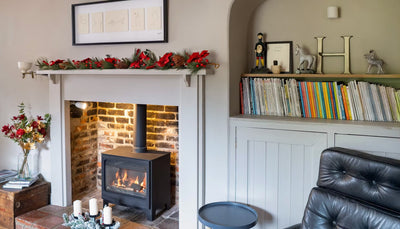
It’s beginning to look a lot like Christmas! Without a needle on the floor, our Christmas collection is here to bring instant, easy and unbelievably beautiful colour this festive season.


While saying goodbye to 2023, we are pleased to name the areca palm as our ‘tree of the year’, as demand for outdoor faux-liage increases.
Embracing the ‘tropical-core’ trend, which has now surpassed 40 million views on TikTok, we have officially sold more artificial areca palms than any other product in 2023, accounting for 8.5% of revenue this year to date. Sales in the last month alone are up 46.5% compared to the same period last year.
Looking at our most-sold products of 2023 suggests a clear spike in interest for outdoor artificial trees:
The demand for exterior decorating is reflected across the UK, as Brits search for artificial outdoor plants five times more frequently than for artificial indoor plants, supporting our sales insight.

There is an inclination toward statement pieces, as ‘large artificial outdoor plants’ becomes a rising search trend in the UK, with a 50% increase in interest. Globally, people are searching for the ‘most realistic artificial outdoor plants’, which has experienced a massive 300% increase in search interest.
Influencing this trend could be a growing preference for low-maintenance gardens, with Brits wanting to spend more time relaxing in their spaces than maintaining them. 42% of respondents to our recent survey claimed that they purchase faux plants as they do not have time for the upkeep of real varieties.
Nearly two-thirds (63%) of participants also claimed that they opt for artificial plants due to their durability, in that they are long-lasting.
Exploring Brits’ current shopping habits, our survey also revealed that 9 in 10 customers are purchasing plants and flowers for their own homes rather than gifting — surprisingly, only 5% of respondents were making their purchase as a gift. Nowhere in the UK bought as many artificial plants and flowers as our shoppers in the South East, with 18% of respondents located in the region.

As we move into 2024, we would predict the Cedar Spiral to continue moving up the best-sellers list, as sales in the last month are up 137% compared to the same period last year. New contenders are also expected, with vanilla grass and pansy bushes also experiencing a recent spike in sales, at 152% and 59% respectively.
We’ve also seen strong growth for large broad-leaf greenery, with items such as strelitzias and fiddle leafs experiencing an increase in demand through 2023, which looks set to continue in the new year.
Our managing director, Alick Burnett, concludes...
“Looking ahead to 2024, we expect there to be a continuing desire for low-maintenance artificial plants — particularly ranges that are aesthetically pleasing but difficult to grow in the UK, like palms and other exotics.
As people’s lives only seem to get busier, we anticipate this demand for our artificial plants to remain strong; reflecting a desire for the aesthetic value that plants bring to both interiors and exteriors, combined with a need for the convenience and low-hassle nature that faux varieties offer.”
- Alick Burnett
Want to learn more about plant trends? check out our other blogs & FAQ page, or get in touch.